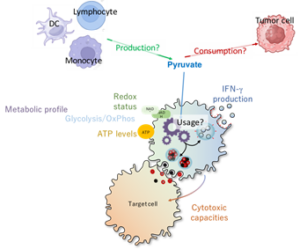Date of the offer: January 2025
Internship supervisor and Host laboratory:
Lab: Lyacts team, CIRI
Team leader: Thierry Walzer, DR1, thierry.walzer@inserm.fr
Supervisor for the internship: Antoine Marçais, CRCN, antoine.marcais@inserm.fr, 04 37 28 74 24
Address of the internship: 50 avenue Tony Garnier 69007 Lyon
Team Website: https://ciri.ens-lyon.fr/teams/lyacts?set_language=en&cl=en
Languages spoken in the lab: French/English
Research project title: Natural Killer cell immunometabolism: competition and cooperation for nutrients to sustain functions
Keywords: Natural Killer cells, Metabolism, mTOR, carbon tracing
Project description:
Natural Killer (NK) cells are innate lymphoid cells with anti-viral and anti-tumoral properties. We study the molecular mechanisms sustaining their functions and uncovered the role of the mechanistic Target of Rapamycin (mTOR) as a checkpoint of NK cell development and effector potential1,2. Of note, mTOR is a major hub connecting a variety of immunological signals to cellular metabolism. Pursuing this path, we recently described the role of exogenous pyruvate in regulating NK cell metabolism and functions3. A number of questions arise from this study and will be the subject of this internship.
Regulation of Pyruvate bioavailability. Exogenous pyruvate is absolutely required for NK cell survival and functions. The source of this pyruvate in vivo remains elusive. We will test the ability of various cell types (monocytes, Dendritic Cells, lymphocytes…) to secrete pyruvate and provide a help to NK cells in a cooperative configuration. Conversely, we will test whether certain cell types such as tumors consume pyruvate, therefore suppressing NK cell action.
Role of the pathways fed by glucose-derived carbons. Using carbon tracing experiments, we have shown that glucose is not used as a bioenergetic substrate in human NK cells but rather feeds biosynthetic pathways such as the pentose phosphate pathway or the Serine-Glycine One carbon metabolism. The reason of this metabolic configuration is unknown. We hypothesize that these adjacent pathways are required to maintain NK cell redox equilibrium and cytotoxic granules loading. Using specific inhibitors of these pathways and conditioned media, we will test these hypotheses.
This Master’s internship paves the way for a PhD project aimed at elucidating the metabolic reprogramming that governs the activation of human NK cells, a question of therapeutic interest given the increasing use of NK cells in clinical settings.
Models and techniques:
Human PBMCs including NK cells, monocytes, lymphocytes… Mouse models. Flow cytometry, cell culture, biochemistry (capilary WB…), metabolic analysis (Seahorse, metabolomic), proteomic.

Lab publications on the subject:
- Marçais, A., Cherfils-Vicini, J., Viant, C., Degouve, S., Viel, S., Fenis, A., Rabilloud, J., Mayol, K., Tavares, A., Bienvenu, J., et al. (2014). The metabolic checkpoint kinase mTOR is essential for IL-15 signaling during the development and activation of NK cells. Nat Immunol 15, 749–757. 10.1038/ni.2936.
- Marçais, A., Marotel, M., Degouve, S., Koenig, A., Fauteux-Daniel, S., Drouillard, A., Schlums, H., Viel, S., Besson, L., Allatif, O., et al. (2017). High mTOR activity is a hallmark of reactive natural killer cells and amplifies early signaling through activating receptors. eLife Sciences 6, e26423. 10.7554/eLife.26423.
- Kern, N., Picq, L., …, T Walzer* and A Marçais*. Exogenous pyruvate controls human NK cell bioenergetics to sustain their functions. In favorable revision Nature Metabolism * co- last authors.

